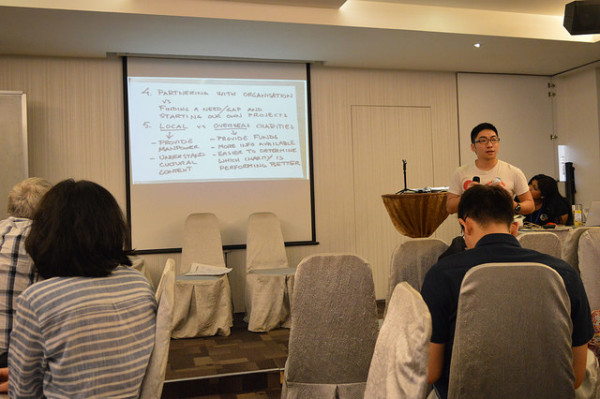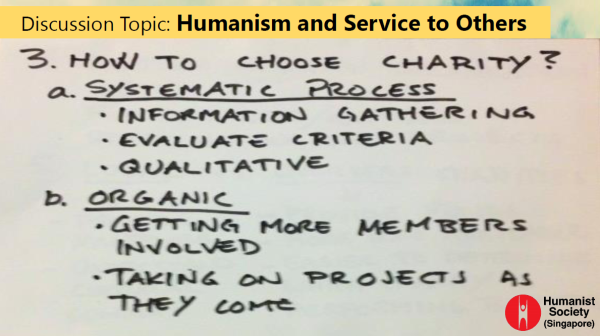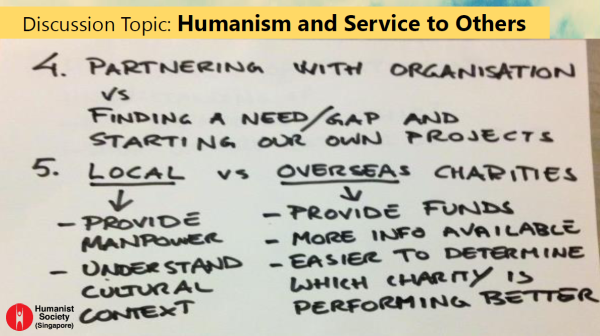
On the first day of the Asian Humanism Conference, participants broke into four groups to discuss four major questions based around the theme: Unity in Diversity. This is the second discussion.
Topic: Humanism and Service to Others
1. The assigned group had a complex discussion over how humanist groups can serve the needy.
2. First, the group discussed what approach the humanist community should take to help the needy. Should humanists react according to the situation, or should they develop a long-term capacity to provide such services? For example, should humanists help gambling addicts directly? Will it stretch our resources? Are humanist groups equipped to do so?
3. The group then talked about the process of choosing charities to work with. Two ways emerged from the discussion.

4. The first method is creating a systematic process where humanists will assess the impact of every single dollar. Based on this thinking, resources should be given to the charity which saves the most lives per dollar. However, this is challenging because you need to gather information about many charities and create a set of criteria for evaluation. Gathering data that can be compared across charities is tough. There is also the issue of being too quantitative when problems can sometimes be qualitative in nature.
5. The second approach calls for organic growth where such service is generated from the ground. Instead of having one centralised place to fix problems, humanists can choose to take on small projects as they come.
6. The group then debated whether humanist groups should partner with other NGOs, or start their own projects after identifying needs and gaps. Also discussed was whether humanist groups should work more with local NGOs or overseas NGOs. During the discussion, there was a spectrum of views. In general, however, the group felt that humanists do not necessarily need to devote all resources into one particular approach, or one particular NGO.
7. The group reached a general consensus that local humanist groups should focus more on local NGOs because they can provide manpower and understand the cultural context. For overseas NGOs, humanist groups can provide funds and local data. However, overseas NGOs are better in a sense that they are much easier to evaluate in a qualitative manner.
8. Lastly, the group talked about what motivations are there for humanists to give back to society. One point that emerged from the discussion was that humanists should help people simply because people need help. There was some discussion about how to deal with motivations that are ‘selfish’. The group felt that this depends on how you define the word ‘selfish’ which can be a very loose term.
Other discussion summaries:





